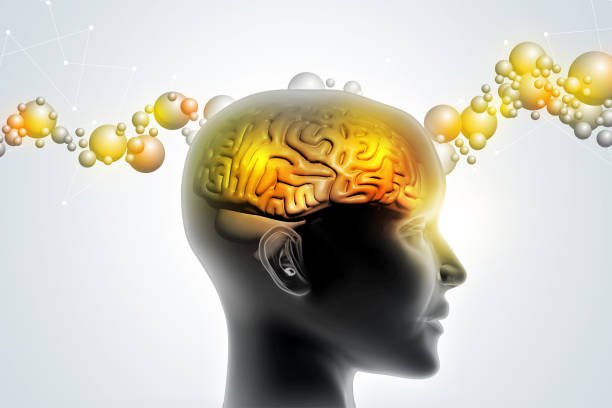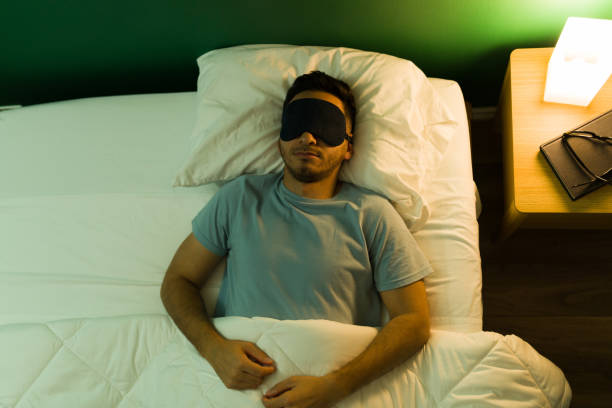Now Reading: The Symbiotic Relationship Between Sleep and Mental Health
-
01
The Symbiotic Relationship Between Sleep and Mental Health
The Symbiotic Relationship Between Sleep and Mental Health

In ancient Greek mythology, Hypnos, the god of sleep, was depicted with his twin, Thanatos, symbolizing death, which underscores sleep’s profound, restorative, yet enigmatic essence. Today, we understand sleep not merely as downtime but as a dynamic builder of mental health. While this connection has been recognized for ages, modern science is now shedding light on its complex interplay.
Current research shows that sleep is not just a result of mental health but a crucial foundation for memory, mood, and possibly preventing mental disorders. It actively repairs neural connections and processes emotions through dreams, deeply affecting our psychology. This article will explore how nightly rest can influence our mental state, providing strategies to use sleep as a tool for mental wellness. We’ll examine recent scientific findings to understand how sleep and mental health are interconnected.
Sleep and Memory

Memory Consolidation: Role of Different Sleep Stages
The process of memory consolidation during sleep is a fascinating dance between different sleep stages. Non-REM (NREM) sleep, particularly the deep stage known as slow-wave sleep, is critical for integrating new information and experiences into long-term memory. It’s during this phase that the brain sorts through the day’s events, deciding what to keep and what to discard. On the other hand, REM (Rapid Eye Movement) sleep plays a pivotal role in emotional memory processing. Here, the brain is active, almost as if mimicking wakefulness, to integrate emotional content from memories, making them less emotionally charged over time. This interplay between NREM and REM sleep ensures that our memories are not only stored but also emotionally regulated, allowing for a more balanced mental state.
Hippocampal Function: Effects of Sleep Deprivation on Memory
The hippocampus, a key player in memory formation, is particularly sensitive to sleep. Sleep deprivation has been shown to impair hippocampal function, leading to deficits in memory, especially the ability to form new memories. Studies using MRI scans have observed that lack of sleep reduces the connectivity within the hippocampus, directly correlating with poorer performance in memory tasks. This suggests that sleep isn’t just rest for the body but a critical time for the brain to “save” the data of the day.
Neurogenesis: How Sleep Supports Brain Cell Formation
Beyond memory consolidation, sleep also promotes neurogenesis – the creation of new neurons in the hippocampus. This process is most active during sleep, with research suggesting that the quality of deep sleep directly influences the rate of neurogenesis. This isn’t just about memory; it’s about the brain’s ability to adapt and heal, offering potential implications for recovery from neurological damage or aging.
Research Insights: Key Findings from Recent Studies
- Sleep and Memory Improvement: A study published in Nature Neuroscience showed that people who slept after learning a task performed significantly better when tested after sleep than those who stayed awake, highlighting the role of sleep in memory consolidation.
- Impact of Sleep on Alzheimer’s: Research from the University of Rochester Medical Center shows that the brain’s glymphatic system actively clears toxins like beta-amyloid, linked to Alzheimer’s disease, during sleep. This suggests that good sleep could be protective against neurodegenerative diseases.
- Sleep Deprivation Studies: Experiments where subjects were deprived of sleep have consistently shown impairments in memory recall and cognitive function, underscoring the necessity of sleep for cognitive health
Sleep and Mood Regulation

Emotional Processing During Sleep: The Role of REM Sleep
REM sleep is not just about dreaming; it’s a crucial period where the brain processes emotional content from the day. By re-experiencing these emotions in a safe, dream-state environment, REM sleep helps in emotional regulation, reducing the intensity of negative emotions over time. This natural therapy could be why a good night’s sleep often leads to a clearer, more balanced mood the next day.
Neurotransmitter Balance: Sleep’s Impact on Brain Chemistry
Sleep influences the balance of neurotransmitters like serotonin, which affects mood, anxiety, and happiness. Sleep disruptions can lead to an imbalance, potentially worsening or triggering mood disorders. Evidence suggests that sleep helps replenish dopamine levels, another neurotransmitter vital for mood and motivation.
Bidirectional Relationship: How Mood Disorders and Sleep Affect Each Other
The link between sleep and mood is not one-way. Mood disorders like depression and anxiety often lead to sleep disturbances, which in turn can exacerbate these conditions, creating a feedback loop. Understanding this cycle is crucial for treating both sleep issues and mood disorders effectively.
Case Studies: Examples of Sleep Therapy for Mood Enhancement
- CBT-I for Depression: Cognitive Behavioral Therapy for Insomnia (CBT-I) not only enhances sleep but also markedly decreases depression symptoms, with research indicating it could be as effective as antidepressants for certain individuals.
- Sleep Extension in Bipolar Disorder: A study from the University of Pittsburgh found that extending sleep in individuals with bipolar disorder could delay the onset of manic episodes, showcasing sleep’s role in mood stabilization.
Sleep in the Prevention of Mental Health Disorders

Early Warning Signs: Sleep Patterns as Predictors of Mental Health Issues
Monitoring sleep patterns can serve as an early warning system for potential mental health issues. Before depression fully develops, people often experience changes in sleep patterns, either sleeping too much or too little, indicating that early intervention in sleep disturbances could prevent or lessen the impact of mental health issues.
Sleep Hygiene as Prevention: Best Practices for Sleep Health
Promoting good sleep hygiene — like maintaining a consistent sleep schedule, creating a sleep-friendly environment, and reducing screen time before bed — can act as preventive measures against the onset of mental health issues. These practices help in regulating the body’s internal clock and reducing stress, which indirectly supports mental health.
Interventional Studies: Examining Treatments Like CBT-I
Cognitive Behavioral Therapy for Insomnia (CBT-I) does more than treat sleep disorders; it’s increasingly acknowledged for preventing the worsening of mental health. CBT-I focuses on changing sleep habits and misconceptions about sleep, which can have a profound impact on overall mental well-being.
Emerging Research: Brain Wave Studies and Their Implications
Advanced research into how different brain waves during sleep correlate with mental health states is opening new avenues for personalized treatment. Understanding which sleep stages are deficient in individuals with mental health issues might lead to tailored sleep interventions.
Emerging Areas in Sleep-Mental Health Research
Genetics and Sleep: How Genes Influence Sleep and Mental Health
Genetic research is uncovering how genetic predispositions can affect sleep quality and, in turn, mental health. Certain gene variants are associated with sleep disorders, which might explain why some people are more susceptible to mental health issues when sleep is disturbed.
Sleep and Neuroinflammation: The Connection Between Sleep, Inflammation, and Psychiatric Conditions
New research connects poor sleep to higher levels of neuroinflammation, which plays a role in various psychiatric conditions. Good sleep might serve as an anti-inflammatory mechanism for the brain, potentially reducing the risk of mental health issues.
Digital Health Solutions: The Role of Technology in Monitoring and Enhancing Sleep for Mental Health
Apps and wearables that track sleep patterns are becoming vital tools, not just for monitoring but also for intervening in sleep disturbances to prevent mental health deterioration. They offer personalized insights and can guide behavioral changes to improve sleep quality.
Practical Advice
Sleep Hygiene Tips: Simple, Actionable Advice for Better Sleep
- Consistent Sleep Schedule: Going to bed and waking up at the same time every day.
- Bedroom Environment: Keep it cool, dark, and quiet.
- Limit Screen Time: Reduce exposure to screens at least an hour before bed.
- Mindfulness Practices: Techniques like meditation can help calm the mind for sleep.
When to Seek Help:
If sleep disturbances persist despite good sleep hygiene practices, or if they correlate with worsening mood or cognitive function, it might be time to consult a healthcare provider. Symptoms like excessive daytime sleepiness, chronic insomnia, or sleep-related anxiety are significant signs.
Conclusion
The close connection between sleep and mental health emphasizes the necessity of making sleep a priority in our mental health care. As research continues to uncover the intricacies of this link, we gain valuable insights and methods to enhance our mental well-being through improved sleep practices. Sleep isn’t just about feeling refreshed; it’s fundamental for nurturing mental health, preventing disorders, and improving our overall life quality. If you’re aiming to improve your mental health, start by examining your sleep habits — they might just be the key to a healthier, happier mind.
FAQ: Sleep and Mental Health
Q1: How does sleep affect memory?
A: Sleep is crucial for memory consolidation. During different stages of sleep, particularly deep NREM and REM sleep, the brain processes and stores new information, strengthens existing memories, and clears out unnecessary data. Sleep deprivation can significantly impair memory formation and recall.
Q2: Can improving sleep help with mood disorders?
A: Absolutely. Sleep plays a vital role in mood regulation through the balance of neurotransmitters and emotional processing during REM sleep. Improving sleep can help stabilize mood, reduce symptoms of depression and anxiety, and might even prevent mood swings in disorders like bipolar disorder.
Q3: What is the connection between poor sleep and mental health issues?
A: Poor sleep can be both a symptom and a cause of many mental health issues. It can exacerbate or trigger conditions like depression, anxiety, and stress. Conversely, these mental health conditions often lead to sleep disturbances, creating a vicious cycle that impacts overall mental well-being.
Q4: How can I tell if my sleep issues are related to my mental health?
A: Indicators include persistent difficulty falling or staying asleep, waking up not feeling refreshed, excessive daytime sleepiness, or changes in sleep patterns correlating with shifts in mood or cognitive function. If these symptoms persist despite good sleep hygiene, it’s wise to consider consulting a healthcare professional.
Q5: What are some effective sleep hygiene practices?
A:
- Maintain a consistent sleep schedule: Go to bed and wake up at the same time every day.
- Create a sleep-conducive environment: Keep your bedroom cool, dark, and quiet.
- Limit exposure to screens: Avoid screens at least an hour before bedtime to reduce blue light exposure.
- Engage in relaxing activities: Practices like reading, taking a warm bath, or meditation can prepare your body for sleep.
- Watch what you eat and drink: Avoid caffeine and heavy meals close to bedtime.
FAQ Practical Tips
Q6: Can technology help with sleep and mental health?
A: Yes, technology like sleep tracking apps and wearables can monitor sleep patterns, providing insights into sleep quality and disturbances. Some apps offer features like guided meditation or sleep sounds to aid in falling asleep. However, reliance on technology should complement, not replace, good sleep hygiene practices.
Q7: What if I’ve tried everything and still can’t sleep well?
A: If sleep issues persist despite trying good sleep hygiene practices, it might be time to see a healthcare provider. Conditions like insomnia or sleep apnea might require more specific interventions, such as Cognitive Behavioral Therapy for Insomnia (CBT-I), medication, or a sleep study.
Q9: How does sleep influence neurogenesis?
A: Sleep, especially deep sleep, has been linked to neurogenesis, the formation of new neurons primarily in the hippocampus. This process is vital for learning, memory, and potentially for recovery from brain injuries or neurodegenerative diseases.
Q10: Can improving my sleep hygiene improve my mental health immediately?
A: While some individuals might notice immediate benefits like feeling more refreshed or having better mood regulation, for others, the improvement might be gradual. Consistent practice of good sleep hygiene can lead to long-term benefits in mental health, but it’s part of a broader approach to well-being.




















